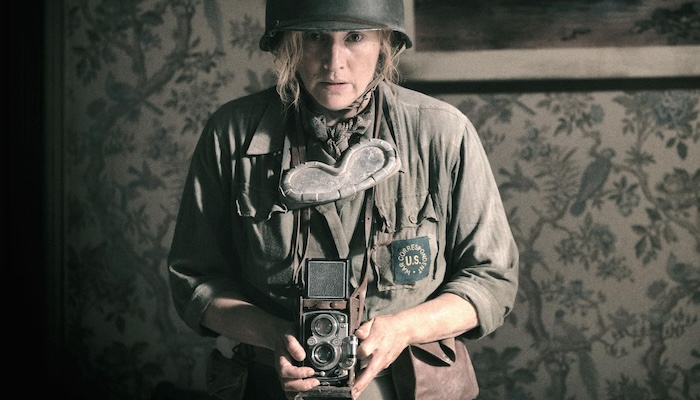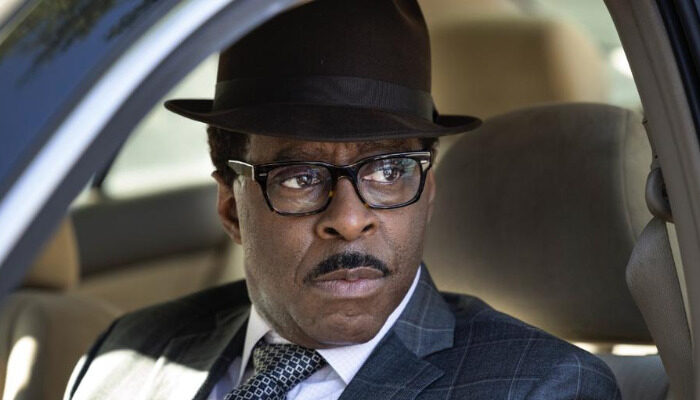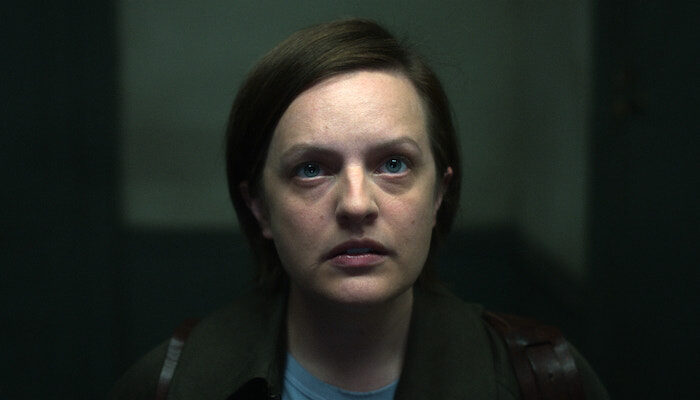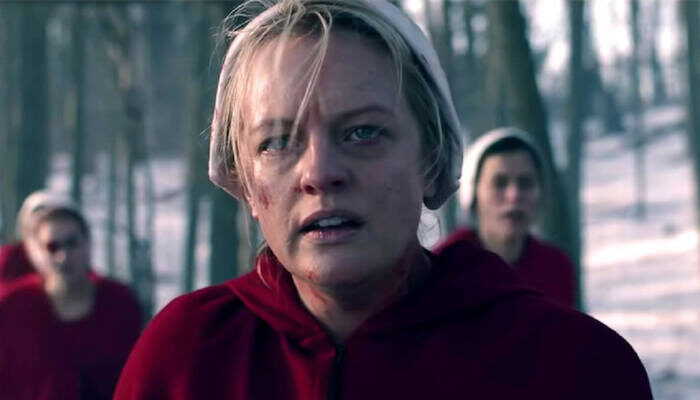TV Review: SHINING GIRLS: Season 1, Episode 1: Elisabeth Moss Shines Bright in New Thriller [Apple TV Plus, SXSW 2022]
Shining Girls Season 1 Episode 1 Review
Shining Girls: Season 1 Episode 1: TV show review from the 29th Annual South by Southwest Film Festival. Judging from the first episode, this series spans across genres, yet the despite the necessarily jagged narrative, the pacing and construction are remarkably clear. Elisabeth Moss might likely score another triumph.
This thriller series promises to be more than a crime thriller as it claims. Shining Girls also conveys elements of the paranormal, science fiction, even the mystical. It’s the story of shifting realities told from the viewpoint of a traumatized young woman — in some respects similar to the popular 90’s TV show, Quantum Leap. But instead of the hapless hero drawn to right a particular wrong, the woman in this series finds herself outside the loop at any given moment without apparent purpose or pattern.
The Antagonist
Like the novel on which this series is based, its foundation lies with Harper (Jamie Bell). This man is the first character you see, and he comes across as remarkably mild and ordinary, which is in fact how he started out in the book — just a guy down on his luck who stumbled into a very bizarre situation. In this pilot there is nothing to suggest that he is actually a time-traveling figure forced to kill certain women, i.e., ‘Shining Girls, in order to keep existing. Jamie Bell manages to let some of the good guy mandated to murder shine through in his first encounter with Kirby as a child, (Maizie Landfear). He has a genuine sweetness; at first you might even take him for the hero. But no: in a horrific, subtle twist he pulls the wings from a bumblebee in front of Kirby before he ambles off.
The Protagonist
It appears that younger Kirby’s intuition had been spot on. Later in the episode it’s clear that Harper’s gruesome kills have a direct impact on the life of Kirby as a younger woman (Elisabeth Moss), after she had barely survived a brutal attack some years before and now seems somehow connected to Kirby’s shifting sense of reality, which she manages by comparing the facts of her current life to a previously written list.
A Kaleidoscopic Reality
For the most part we follow Kirby’s daily life as a newspaper archivist through her skewed point of view. Most unsettling, and intriguing, is the randomness of these changes. For example: Her desk at work had moved across the room over the course of a day. In another instance, Rufus, her pet cat when she had left for work that morning, is a dog when she comes home.
We empathize with Kirby’s frustration and distress when the key doesn’t fit the lock to the apartment she shares — sorry, used to share — with her burnout hippie mom (Amy Brenneman), but instead belongs to the apartment upstairs where she lives (for now) with her boyfriend, Marcus (Chris Chalk).
Not surprisingly, she doesn’t have much luck with the police officer still working on her assault case. Detective Samuels (Brian Boland), offers genuine sympathy as he would to the mentally challenged, refusing to consider that a current murder is connected to her. But Kirby shows she is made of stronger stuff. She teams up with a rogue reporter investigating the murder, Dan (Warner Moura), and the game is on.
Because the POV is so strongly focused on Kirby’s, the random events that account for her halting, uncertain reactions just strongly suggest bouts of post-traumatic stress disorder. But not for long. Alternating scenes of Harper luring and murdering others bolster Kirby’s credibility, and by the end of the episode the confrontation between her and Harper down the line seems inevitable. Moss manages to convey Kirby’s turbulent fear under a veneer of wary anticipation; her eyes are wide with appeal for help; so masterful a performance one can’t take her eyes off her.
The Real Question(s)
Why is Kirby so important to Harper in the first place? The ambiguity behind this crucial query could likely be one of the driving forces in the series. Of course, the obvious discernible difference between Kirby and the other victims is that she survived. Question is, why?
And what’s the purpose behind Harper’s visit to Kirby as a child? More important, why didn’t he kill her then and there? Perhaps he couldn’t, or maybe the consequences would spell disaster. Demonstrating to the girl his gentle cruelty with the bumblebee was a message — you can’t escape this. A warning or a morale-buster? Can Harper time-travel in either direction?
The context of quantum realities is the broad-based appeal of Shining Girls. It has any number of permutations, which can change depending on the particular decisions the players make, on their own and in combination.
Needless to say, possibilities abound to explore the complex intrigues of plot and mining of personalities in this series. If its well-crafted pilot is any indication, new issues should emerge as old ones are addressed. Clearly the ultimate ride in Shining Girls promises to be a tantalizing one, frightening, thoughtful, provocative, and chilling.
Leave your thoughts on this Shining Girls Season 1 Episode 1 review and this episode of Shining Girls below in the comments section. Readers seeking to support this type of content can visit our Patreon Page and become one of FilmBook’s patrons. Readers seeking more South by Southwest Film Festival news can visit our South by Southwest Film Festival Page, our Film Festival Page, and our Film Festival Facebook Page. Readers seeking more film reviews can visit our Movie Review Page, our Movie News Twitter Page, and our Movie News Facebook Page.
Want up-to-the-minute notifications? FilmBook staff members publish articles by Email, Twitter, Facebook, Instagram, Tumblr, Pinterest, Reddit, and Flipboard.
Related Articles
FilmBook's Newsletter
Subscribe to FilmBook’s Daily Newsletter for the latest news!













